52 Weeks of Historical How-To’s, Week 5: Stir up Sunday

I am starting this blog post on Sunday 24 November 2013 and the date is significant – it is a day when work and home life have intersected, as this ‘historical how-to’ re-creation for work links into the reality of Sundays in my family.
Today is the last Sunday in the Church’s year and just a few hours ago I listened to my husband ending the morning service with the traditional Collect for the day, according to the Anglican Communion (of which our Episcopal denomination is a member):
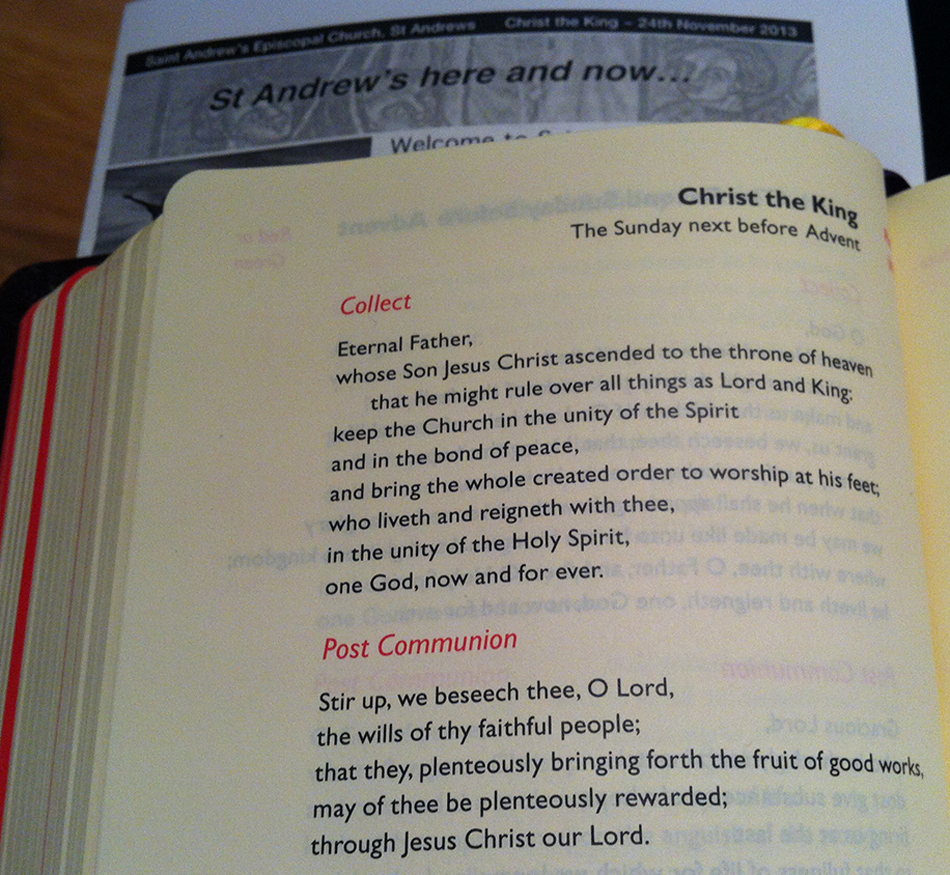
Stirre up wee beseech thee, O Lord, the wills of thy faithfull people, that they plenteously bringing forth the fruit of good works, may of thee be plenteously rewarded, through Jesus Christ our Lord. Amen
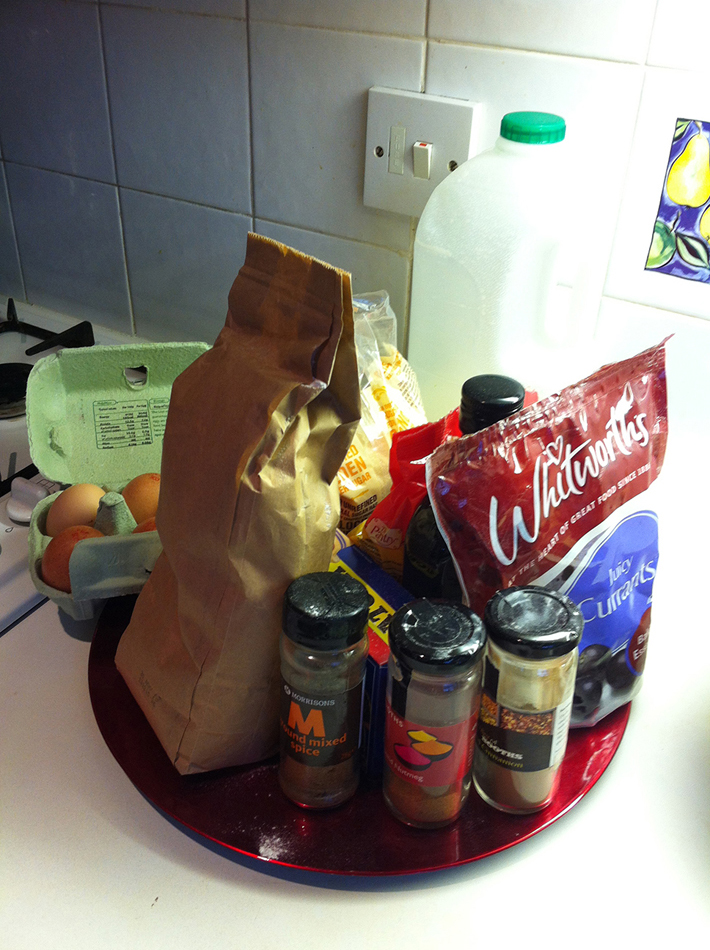
This collect, or prayer, will have been read around the world today on this, the celebration of Christ the King, on the Sunday next before Advent. It is traditionally the day when the words ‘stir up’ are taken literally and the Christmas pudding is made. So I rallied the family round, gathered the ingredients and, for the first time ever, we made our own Christmas pudding today. No microwaveable plastic-bowled pud from whichever supermarket gets ‘Which’ best buy this year for the Harts!
I found a recipe in Meg Dod’s Cookery (1826), reasoning that since this was the first attempt we should not be too adventurous, and the ingredients of this straightforward recipe seemed very simple to adapt to the 21st century. Of course, we won’t know until Christmas Day, whether it is successful!
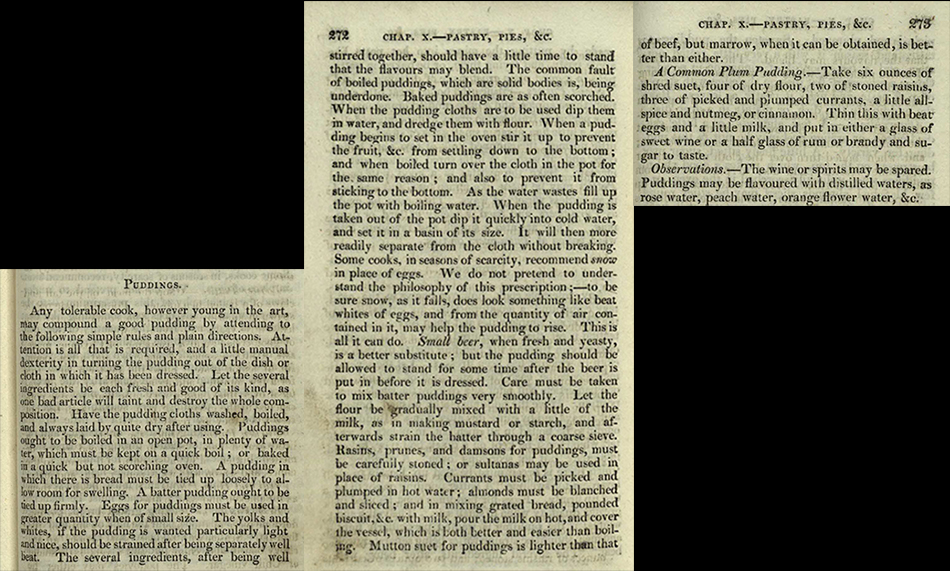
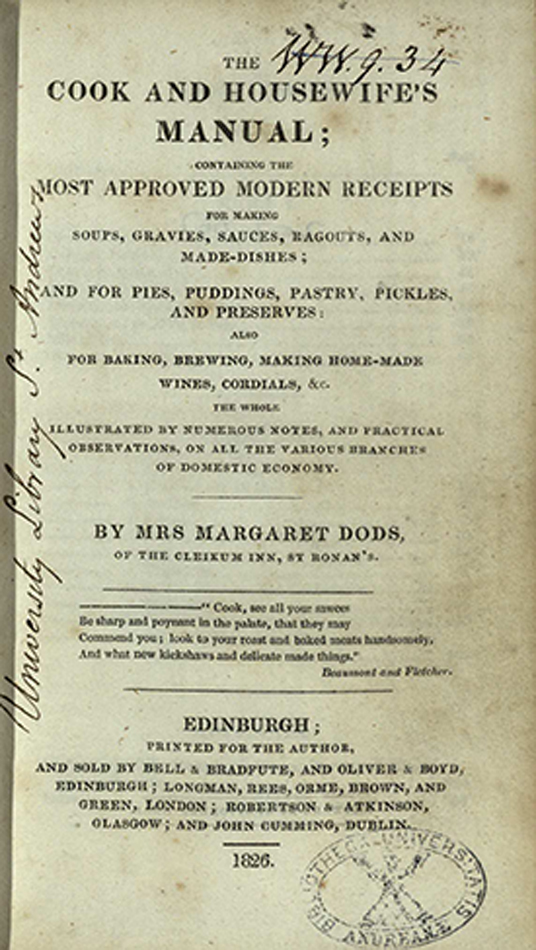
For ‘dry flour’ I just used plain flour. I cheated and used dried suet, as the butchery counter of my local supermarket didn’t supply fresh. I opted for brandy and put in spice, nutmeg and cinnamon for good measure. I guessed at two eggs and a few tablespoons of milk as Meg is a bit vague about quantities. Since she didn’t provide much of a method either, I turned to my trusty Delia Smith’s Complete Cookery Course (BBC, 1989) and followed her instructions. Interestingly, she also was a bit vague on amount of liquid to use, with phrases like ‘soft dropping consistency’ taking me back to high school DS lessons. Delia suggested using a pottery pudding basin with a gusseted tin foil cover in a large saucepan rather than a pudding cloth and steamer. Thank goodness my plans for suspending a pudding cloth from strings over the large pan weren’t going to be necessary!
The making of the pudding was really simple, just requiring lots of mixing at every step by various members of the family, with or without wishes and silver sixpences – and my final version of the method was:
take 1 younger daughter to weigh out and mix the dry ingredients
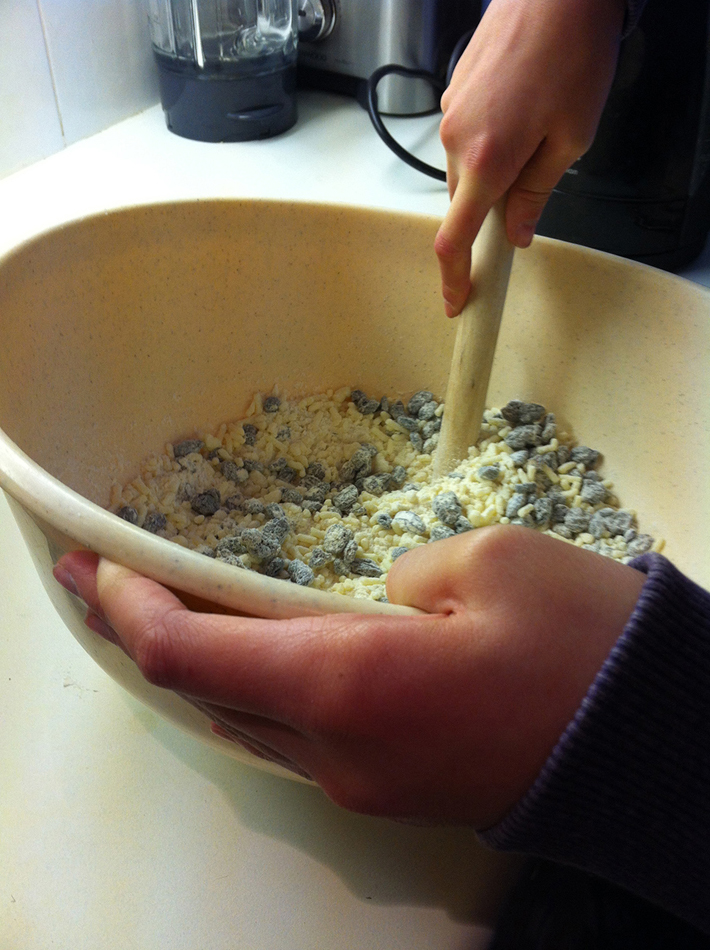
add 1 older daughter to add liquid ingredients and mix well
get 1 husband to beat mixture to smithereens
whilst wife butters the bowl, then fills it up.
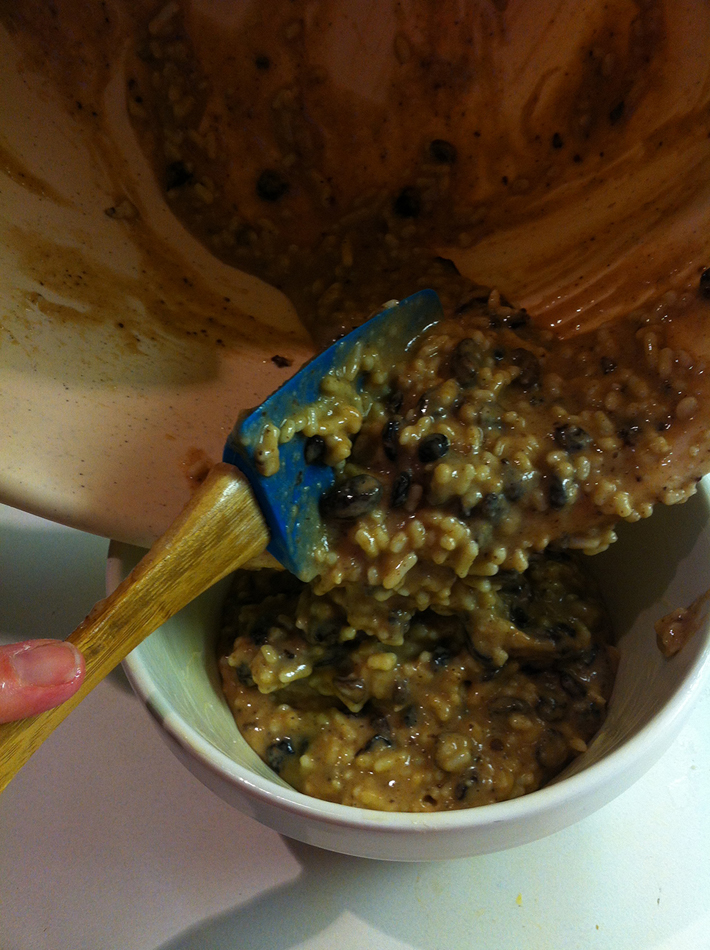
Finally all think of absent son and girlfriend who will share in eating of the pudding, while putting foil lid on pudding basin
Put pudding in large pan on a bed of crumpled tin foil and steam for 4 hours, topping up with boiling water as necessary.
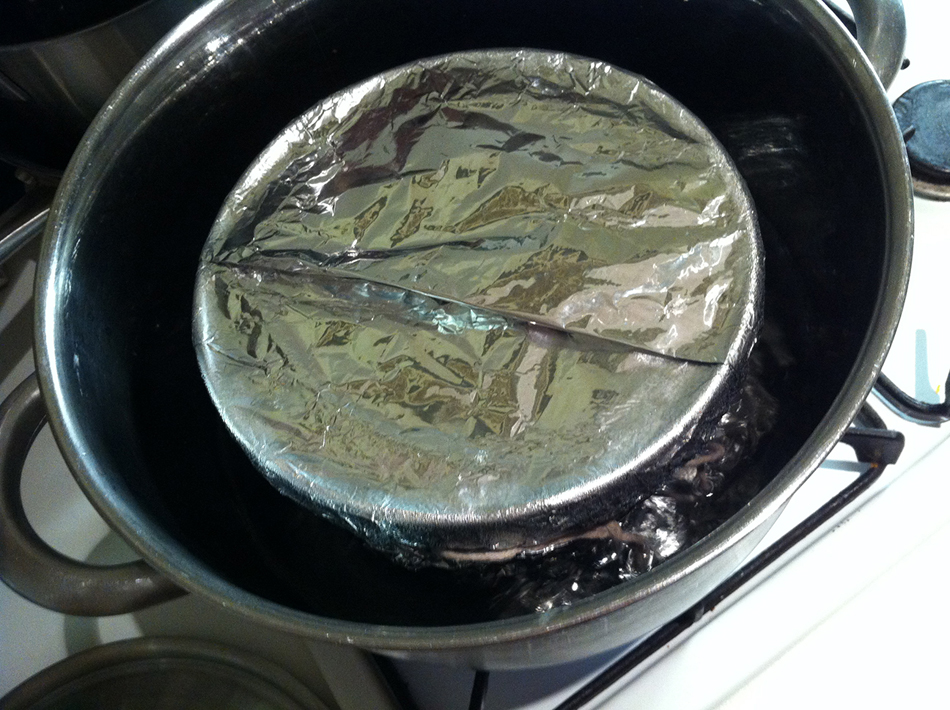
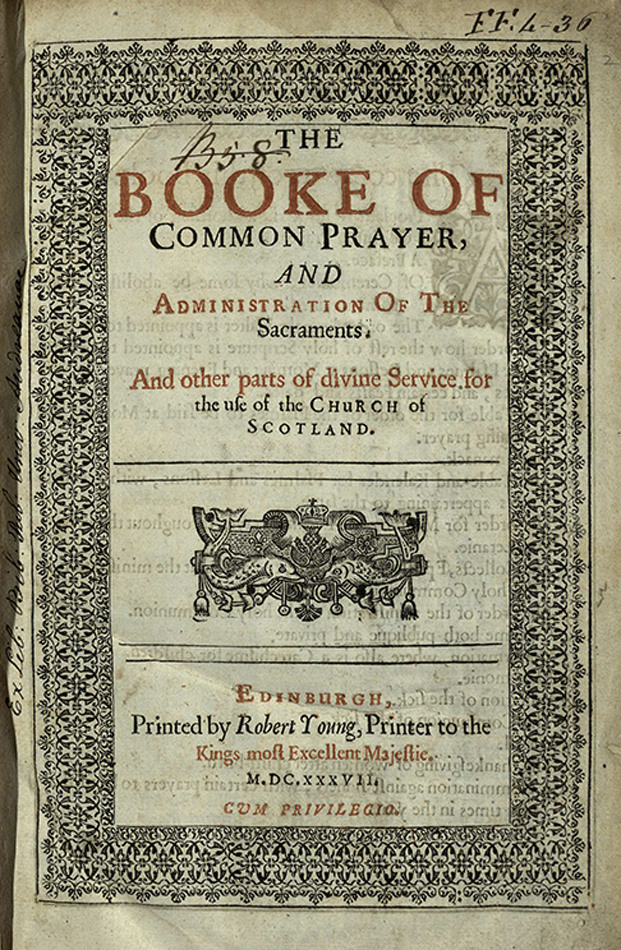
The ‘Stir Up Sunday’ collect is taken from the Book of Common Prayer, the traditional liturgy of the Church of England. I looked for an early copy in our collections and found the 1637 edition which was imposed on Scotland under King Charles I and which was also known as ‘Laud’s Liturgy’, Laud wanted ‘to conform Scotland to the Church of England’ and reviewed or edited this version of the Prayer Book. On 13 June 1637 the Privy Council instructed every minister in Scotland to have two Books of Common Prayer in his possession within 15 days. We have three copies in the typographical collection which have detailed woodcuts and two colour printing. This edition was printed in Edinburgh by Robert Young and is bound with the Psalms alledged to have been translated by King James VI and I.
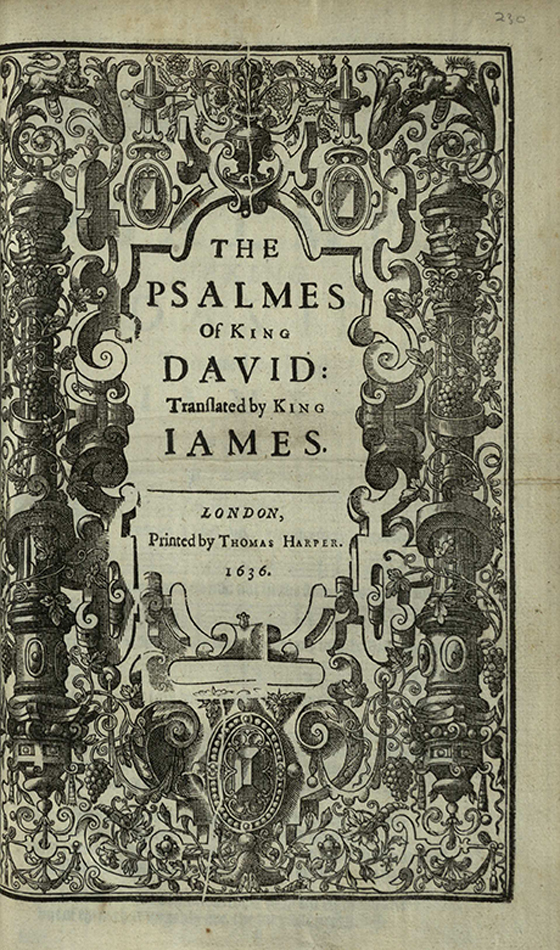
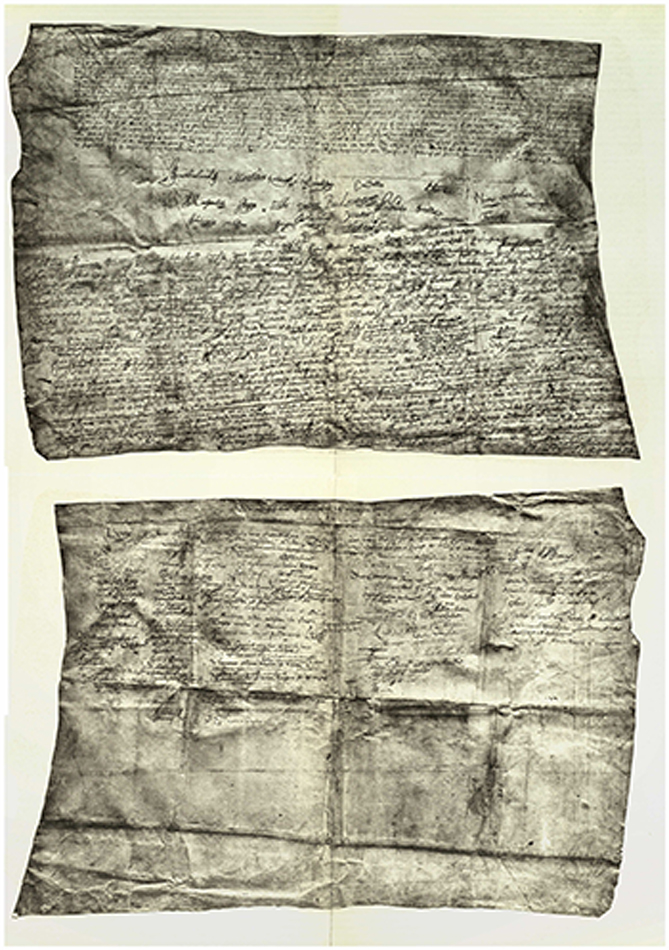
In 1926, St Andrews historian of the Reformation Dr David Hay Fleming gave a paper to the Society of Antiquaries of Scotland about a manuscript which had just been saved for the nation: ‘Scotland’s Supplication and Complaint Against the Book of Common Prayer (otherwise Laud’s Liturgy), the Book of Canons, and the Prelates, 18th October 1637’. He sets the context for the drawing up of this petition by looking right back to the Reformation of 1560. He traces the tempestuous tussle between episcopacy and presbyterianism and charts the story of the imposition of the prayer book. The petitions and protests culminated in the signing of the National Covenant of 1638, and ultimately the King was forced against his will to rescind ‘all acts and proclamations for establishing the Service Booke, Booke of Canons and High Commission’. (DHF, 71)
The Calendar in the Prayer Book for November includes an instruction to remember the birth of King Charles on 19 November. Of course a later edition would instruct the faithful to remember his martyrdom on January 30 each year.
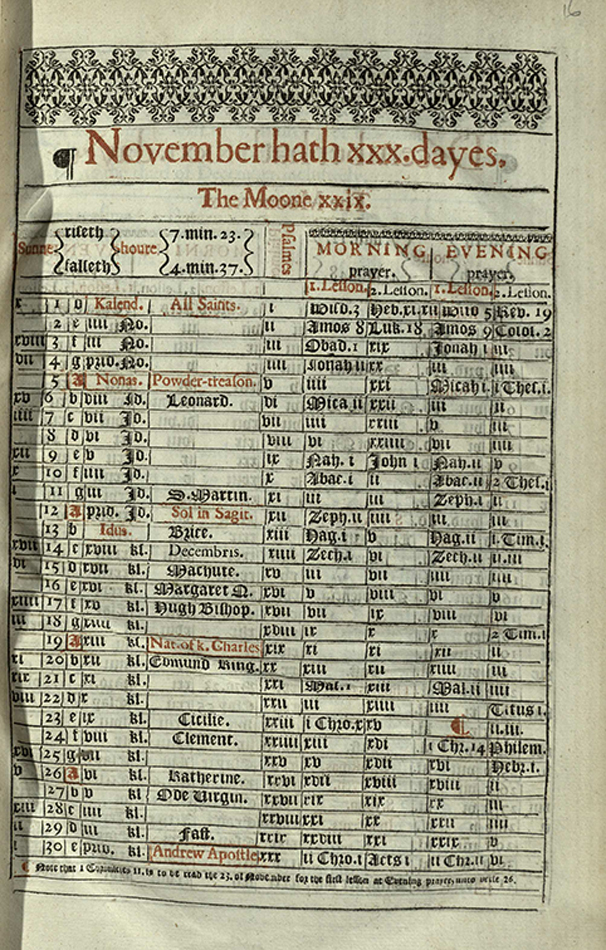
And since this post is coming out just before St Andrew’s Day on 30 November, I will finish with the page of the 1637 prayer book which gives the collect and reading for his feast day.
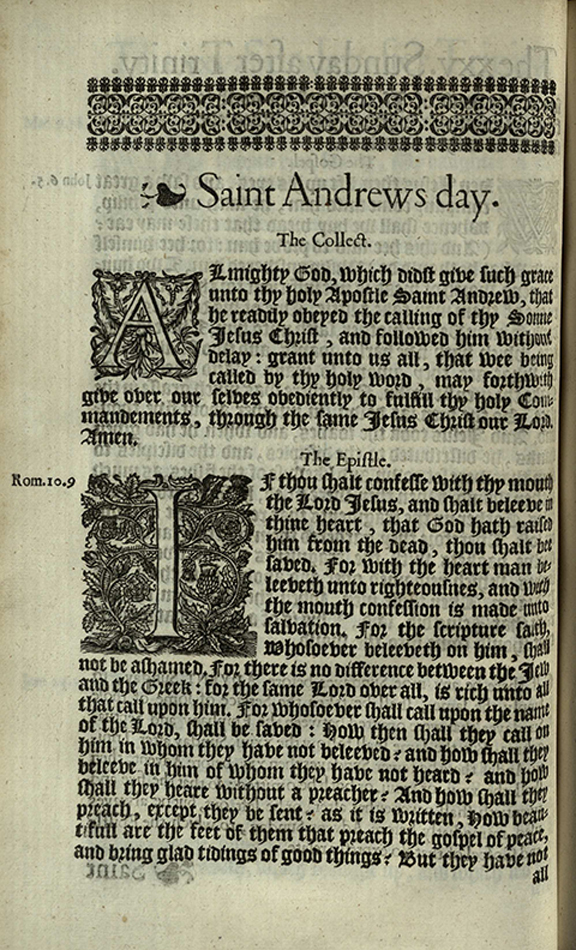
RH
Oh, Rachel - lovely ! but didn't you all have a stir and a wish ? You'll really enjoy it.
Hi Lis - Yes, as is the tradition with wishes, I left it up to each member of the family whether they wished and didn't enquire about what they wished for! It was a fun family activity! Rachel.